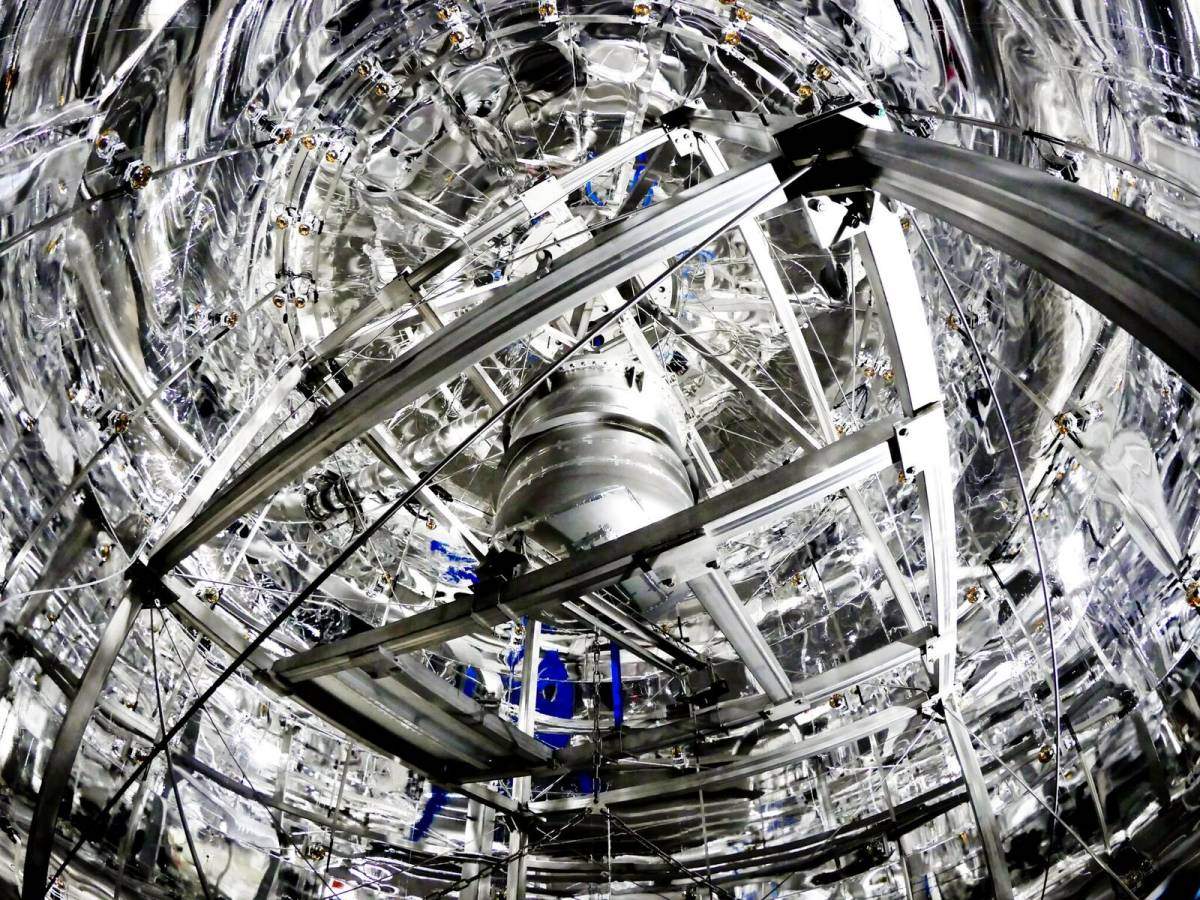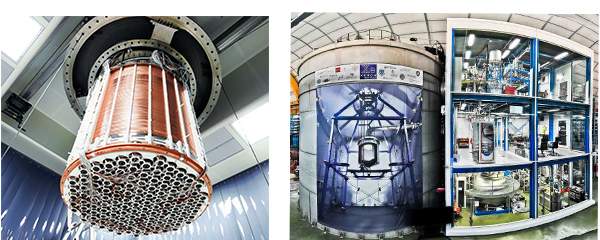Are you a journalist? Please sign up here for our press releases
Subscribe to our monthly newsletter:

Dr. Ran Budnik and his team in the Weizmann Institute of Science joined 165 researchers from 27 research institutes around the world working on the XENON1T experiment. This experiment is the most sensitive by far to search for dark matter, and the results they reported this week set a stringent limit on the possible mass of particles that could make up the elusive dark matter. Following these results, based on a tank containing over a ton of liquid xenon and data collected from close to a year, the research team is planning an even larger, more sensitive experiment – XENONnT – for 2019.
Dark matter is thought to make up 83% of all matter, but it is invisible to us as it does not emit light and interacts only very weakly with ordinary matter. One of the candidates for dark matter is the Weakly Interacting Massive Particles, or WIMPs. XENON1T has been at the forefront of the search for WIMPs. Deep underground, in the INFN Laboratori Nazionali del Gran Sasso in Italy, the xenon detector waits for a signal that would report the interaction of a WIMP with a xenon atom. This would be a tiny flash of scintillation light and a handful of ionized electrons, which themselves emit tiny flashes of light.

Budnik and his team in the Institute’s Particle Physics and Astrophysics Department worked on the control systems for the XENON1T equipment, their calibration, and statistical interpretation and analysis.
Since the first experiment, in 2005, the XENON collaboration has increased the potential target mass from 5kg to 1300 kg, while decreasing the background interference by a factor of 5000. The newest iteration will increase the target four times over, while decreasing the background interference by yet again a factor of ten. “Because the XENON1T setup is so precise,” says Budnik, “the fact that no background events were detected in the purest region of the detector means that we can now set a limit on the interactions of WIMPs with ordinary matter. The new detector will enable us to search for these particles in a range that cannot be yet observed.”
Dr. Ran Budnik is the incumbent of the Aryeh and Ido Dissentshik Career Development Chair.